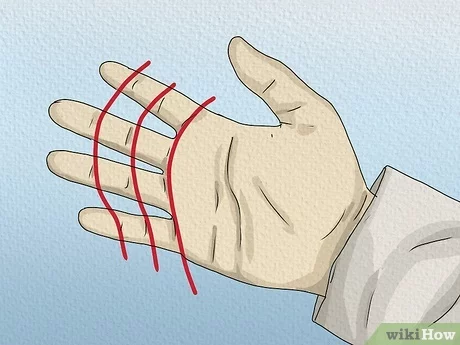 Reading the Qur'an, the tilawah, must involve your whole 'person'. Only thus will you be able to elevate your encounter with the Qur'an to the level where you can be called a 'true' believer in the Qur'an (Al-Baqarah 2: 121).
Reading the Qur'an, the tilawah, must involve your whole 'person'. Only thus will you be able to elevate your encounter with the Qur'an to the level where you can be called a 'true' believer in the Qur'an (Al-Baqarah 2: 121).
What is the Heart?
The more important part of your 'person' is your inner self. This inner self the Qur'an calls the qalb or the 'heart'. The heart of the Prophet, peace and blessings be on him, was the first recipient of the Qur'anic message:
{Truly it has been sent down by the Lord of all the worlds, the Trustworthy Spirit has alighted with it upon your heart [O Prophet], that you may be one of the warners …} (Ash-Shu`ara' 26: 1924).
You will therefore reap the full joys and blessings of reading the Qur'an when you are able to involve your heart fully in your task.
The 'heart', in Qur'anic vocabulary, is not the piece of flesh in your body, but the centre of all your feelings, emotions, motives, drives, aspirations, remembrance and attention. It is the hearts which soften (Az-Zumar 39: 23), or harden and become stony (Al-Baqarah 2: 74). It is they which go blind and refuse to recognize the truth (Al-Hajj 22: 46) for it is their function to reason and understand (Al-A`raf 7: 179; Al-Hajj 22: 46; Qaf 50: 37).
In hearts lie the roots of all outward diseases (Al-Ma'idah 5: 52); they are the seat of all inner ills (Al-Baqarah 2: 10); hearts are the abode of Iman (Al-Ma'idah 5: 41) and hypocrisy (At-Tawbah 9: 77).
It is the hearts, again, which are the centre of every good and bad thing, whether it be contentment and peace (al-Ra`d 13: 28), the strength to face afflictions (At-Taghabun 64: 11), mercy (Al-Hadid 57: 27), brotherly love (Al-Anfal 8: 63), taqwa (al-Hujurat 49: 3; Al-Hajj 22: 32); or, doubt and hesitation (At-Tawbah 9: 45), regrets (Aal-`Imran 3: 156), and anger (At-Tawbah 9: 15).
Finally it is, in reality, the ways of the heart for which we shall be accountable, and only the one who brings before his Allah a sound and whole heart will deserve to be saved.
{Allah will not take you to task for a slip, but He will take you to task for what your hearts have earned.} (Al-Baqarah 2: 225).
{The Day when neither wealth nor children shall profit, [and when] only he [will be saved] who comes before Allah with a sound heart [free of evil]} (Ash-Shu`ara' 26: 88-9).
You must therefore ensure that so long as you are with the Qur'an, your heart remains with you. The heart not being that piece of flesh but what the Qur'an calls qalb.
Once a truth so permeates your inner world, it must pour out in the world of words and deeds.This should not prove difficult if you remain conscious of a few things and observe certain actions of heart and body The seven prerequisites described earlier lay the foundation for the fuller participation of your inner self in reading the Qur'an. In addition to these, the taking of a few more steps will greatly increase the intensity and quality of this involvement of the heart.
Dynamic of Inner Participation
You should understand the dynamic of inner participation well. For how is your heart seized by Truth? First, you come to know the truth. Second, you recognize and accept it as the truth and as relevant to your life. Third, you remember the truth, as much and as often as you can. Fourth, you absorb it until it soaks into the deepest recesses of your inner self. The truth thus becomes an ever-alive state of consciousness, an enduring posture of the heart. Once a truth so permeates your inner world, it must pour out in the world of words and deeds.
It is also important to remember here that what you do outwardly, by your tongue and limbs, interacts with what you are inwardly. It is possible that words and deeds may be false witnesses to the state of inner self. But an inner state, like faith, must necessarily find expression in words and deeds, which, in turn, must help in engraving your knowledge in your consciousness and turn it into an abiding condition.
The steps suggested in this series will be effective if you remain mindful of the above dynamics and follow the above principles.
States of Consciousness
There are seven states of consciousness which you must try to develop by remembering certain things, absorbing them and by frequently reminding yourself of them. Read more about these steps in the next parts of this series.
Source : http://www.onislam.net
Post Disclaimer | Support Us
Support Us
The sailanmuslim.com web site entirely supported by individual donors and well wishers. If you regularly visit this site and wish to show your appreciation, or if you wish to see further development of sailanmuslim.com, please donate us
IMPORTANT : All content hosted on sailanmuslim.com is solely for non-commercial purposes and with the permission of original copyright holders. Any other use of the hosted content, such as for financial gain, requires express approval from the copyright owners.
 Sri lanka Muslims Web Portal Sri Lanka Muslims News Center
Sri lanka Muslims Web Portal Sri Lanka Muslims News Center
 Donate
Donate


